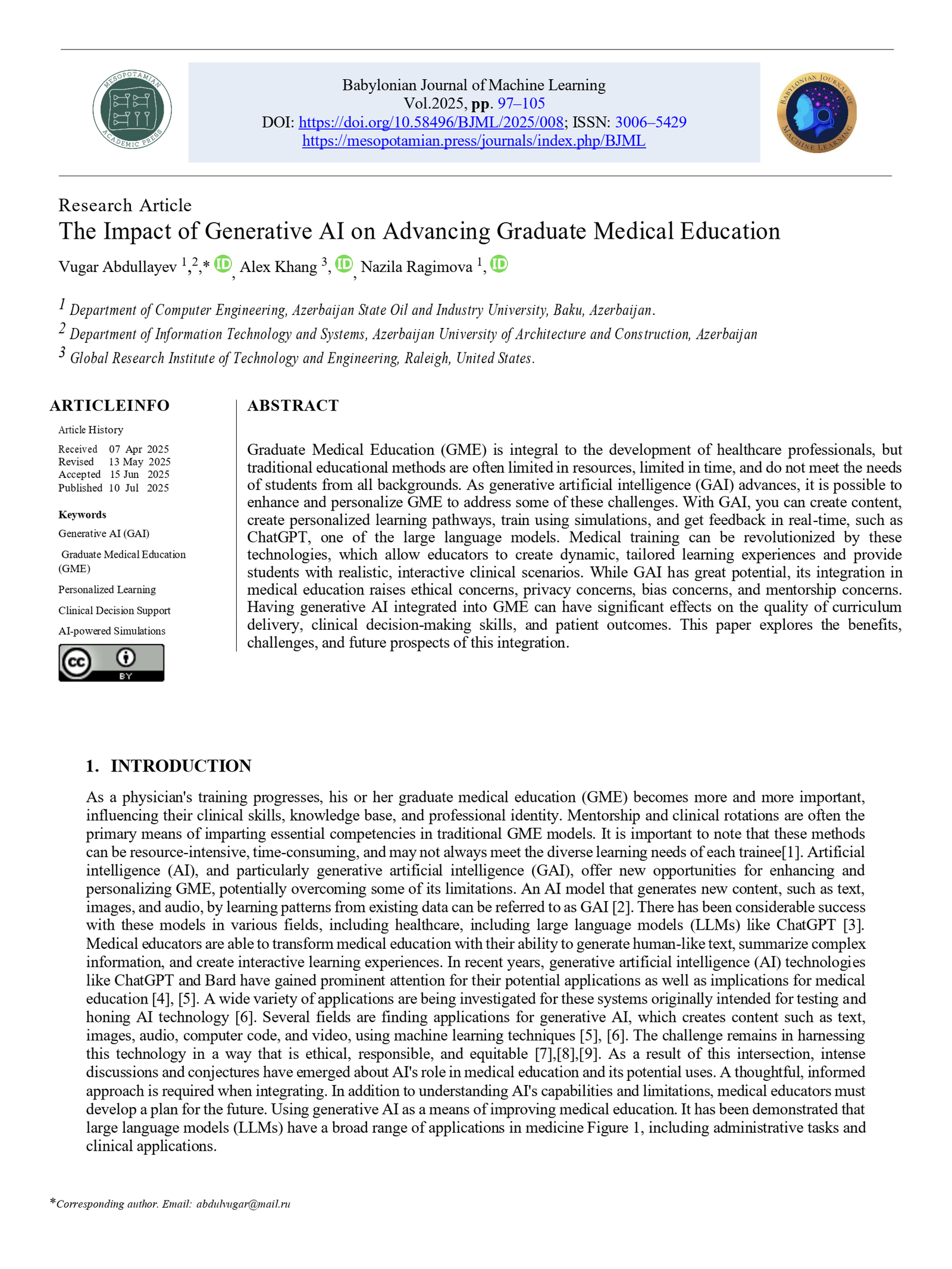The Impact of Generative AI on Advancing Graduate Medical Education
Main Article Content
Abstract
Graduate Medical Education (GME) is integral to the development of healthcare professionals, but traditional educational methods are often limited in resources, limited in time, and do not meet the needs of students from all backgrounds. As generative artificial intelligence (GAI) advances, it is possible to enhance and personalize GME to address some of these challenges. With GAI, you can create content, create personalized learning pathways, train using simulations, and get feedback in real-time, such as ChatGPT, one of the large language models. Medical training can be revolutionized by these technologies, which allow educators to create dynamic, tailored learning experiences and provide students with realistic, interactive clinical scenarios. While GAI has great potential, its integration in medical education raises ethical concerns, privacy concerns, bias concerns, and mentorship concerns. Having generative AI integrated into GME can have significant effects on the quality of curriculum delivery, clinical decision-making skills, and patient outcomes. This paper explores the benefits, challenges, and future prospects of this integration.
Article Details
Issue
Section

This work is licensed under a Creative Commons Attribution 4.0 International License.
Deprecated: json_decode(): Passing null to parameter #1 ($json) of type string is deprecated in /home/u273879158/domains/mesopotamian.press/public_html/journals/plugins/generic/citations/CitationsPlugin.php on line 68
